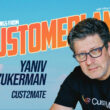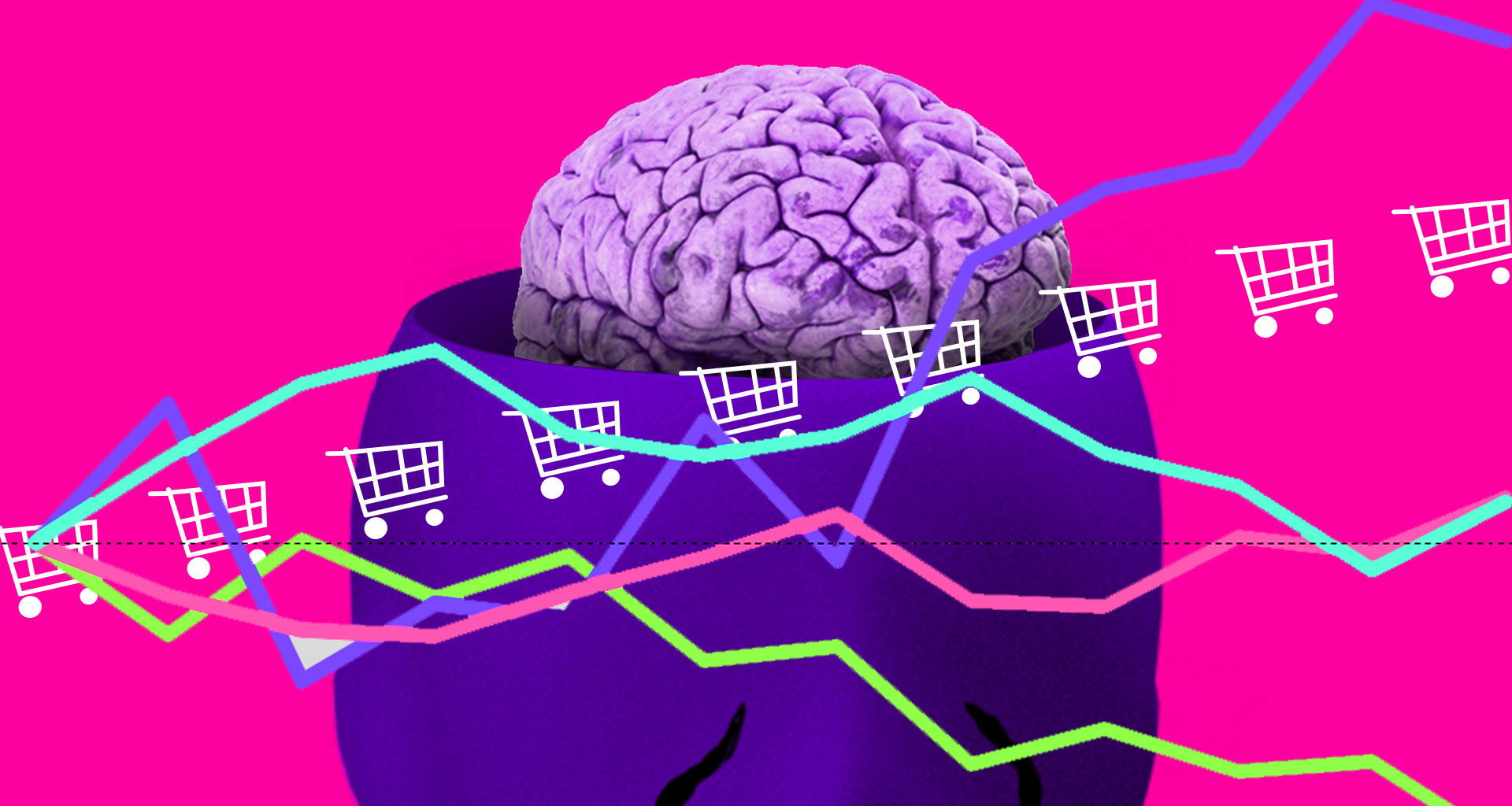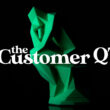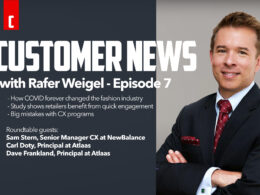Does Psychology Provide a Crystal ball into Brand Performance?
Human beings have always longed to predict the future – to have the proverbial ‘crystal ball’ to foresee what will happen, and how it will impact our lives, futures, and fortunes. And while we’ll never be able to envision all that lies ahead, science and technology have made huge strides in forecasting meaningful shifts that await on the horizon.
By Oliver Hellewell
In a recent webcast, RBC Capital Markets Managing Director, Nik Modi, and President of market research firm Alpha-Diver, Hunter Thurman, shared findings from a multi-year joint study intended to create a true leading indicator of brand performance. The discussion unfolded into a revelation of a key mindset shift in consumer culture, and its profound impact on predicting, and driving, brand performance.

Cracking the Code on Consumer Decisions
The discussion began with a comparison between traditional data analysis, and lagging indicators traditionally relied upon by both marketers and Wall Street analysts. As Modi and Thurman compared these conventional metrics to more modern methods based in neuroscience and psychology, Thurman shared the insight that, while the context of consumer culture changes constantly, human psychology remains relatively stable, and even fairly predictable.
He went on to highlight the challenge of deciphering consumer behavior in the real world, considering the multitude of influences and forces continually at play. The duo explained how the pursuit of leading indicators became a focal point in their collaboration, aiming to predict brand performance rather than relying on lagging indicators.
“I challenged Hunter and his team to apply their measure to create a demonstratable leading indicator…” – Nik Modi
Mapping Psychology to Real-World Performance
At the core of this study were three databases, focused against the past two years of performance from Q2 2021 through Q2 2023. The first two data sets reflect conventional sales data relative to sales volume and household penetration performance. The third, a proprietary psychology-based data set, was leveraged to reveal a distinctive trend in consumer psychology.
In short, a growing inclination towards “do what feels good to me right now” continues to define the consumer Zeitgeist (the red line in the chart below). Thurman explained the correlation between this psychological shift and ongoing cultural pressure, primarily fueled by amplifiers like social media, leading to something of a YOLO (You Only Live Once) mindset, signifying a transformation in how individuals approach decision-making and lifestyle choices.
He went on to explain that this driver of behavior is dramatically out-weighing other behavioral factors like social conformity, exploration and experience, and purely rational choice. As he put it “this is why people are continuing to drive thru quick-serve restaurants and enjoy a salty snack or soda, even as prices rise.”
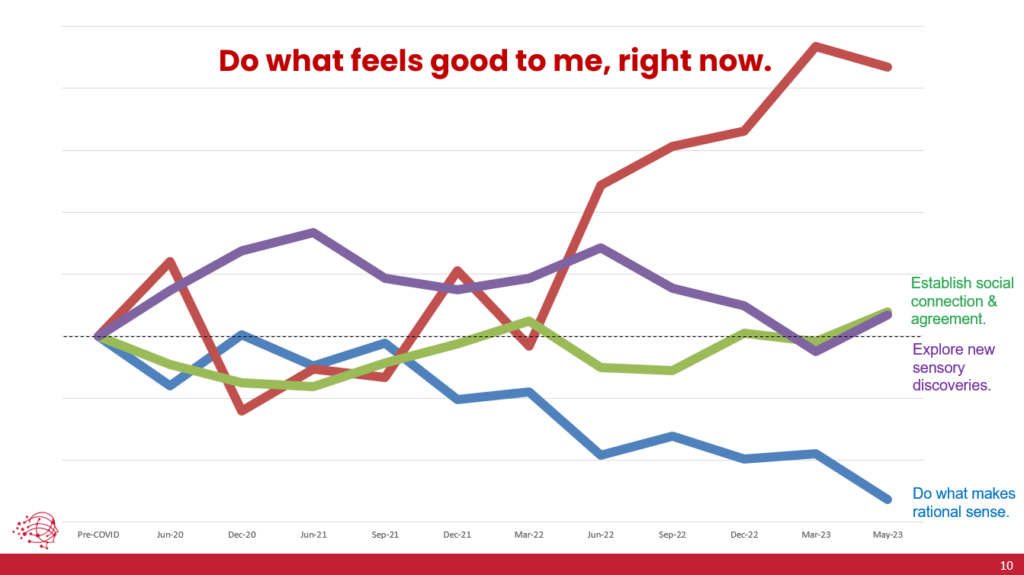
Brand Impact and Performance Metrics
The study leveraged a range of popular beverage brands as familiar exemplars, focusing on mid-tier brands – those that are harder to evaluate for marketers and analysts. While brands like Coca-Cola, Gatorade, and Pepsi are massive in scale, and therefore move more slowly, smaller brands like Monster Energy, Coke Zero, and Diet Pepsi can be tougher to evaluate.
The analysis centered around 17 well-known beverage brands with characteristics making them particularly vulnerable, or promising, to potential shifts in consumer perception and behavior. Applying psychological measures, these brands were evaluated in terms of how strongly consumers feel that they provide the “Feel-Good-Fast” benefit, with some brands aligning strongly in the minds of consumers, and others serving one of the other drivers of choice.
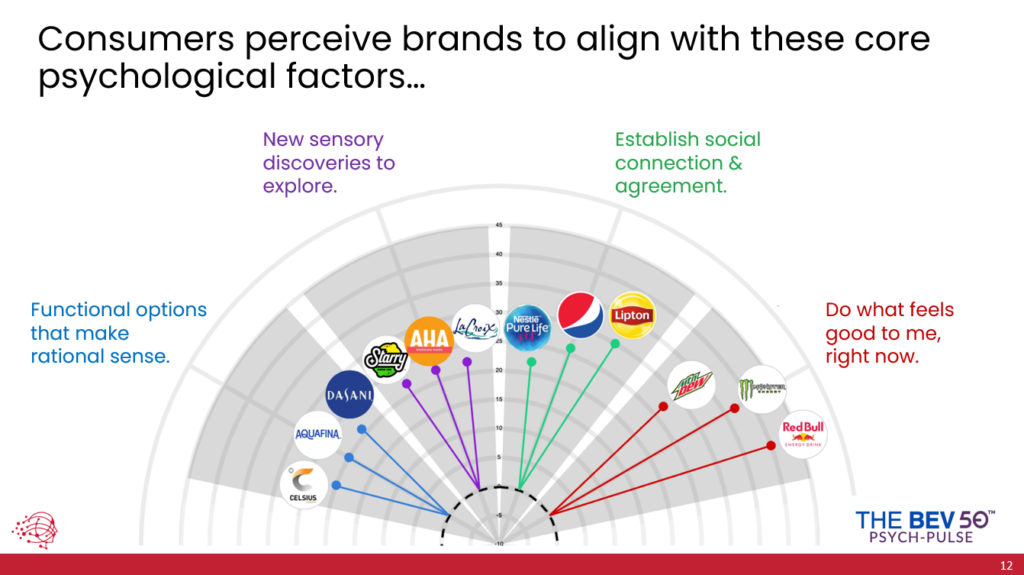
Does Psychology Equal Dollars?
The pivotal (multi)million-dollar question took center stage: Does psychology equate to tangible real-world sales? Thurman, along with his team of PhD neuroscientists, engaged in a collaborative effort with the RBC analyst team to meticulously overlay the rich psychological data with comprehensive sales performance data. The results of this in-depth analysis were nothing short of compelling, distinctly indicating a robust correlation between psychological alignment and both volume sales and household penetration.
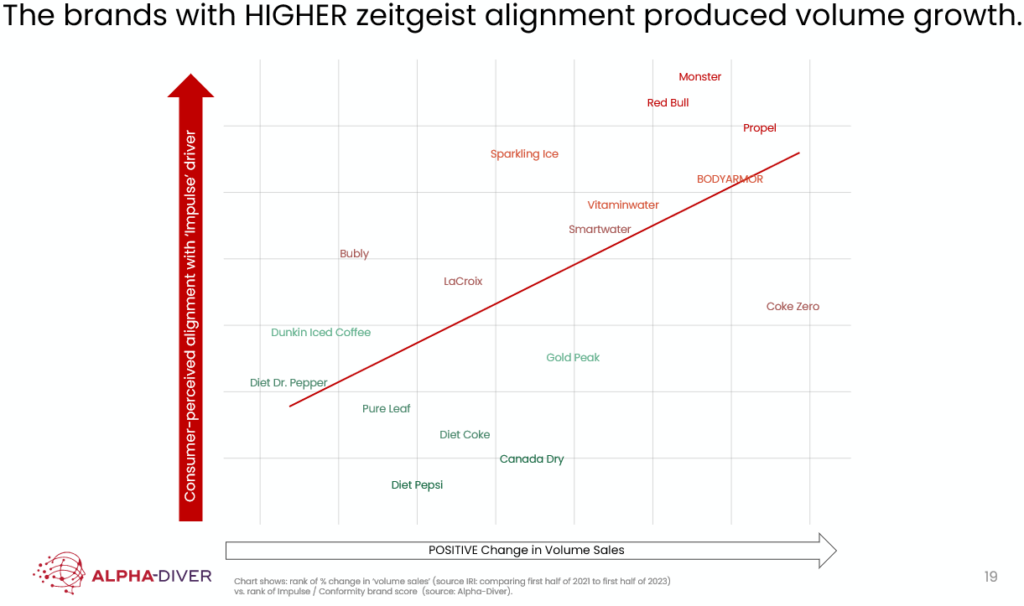
Looking at U.S. performance from Q2 2021 through Q2 2023 the brands that consumers (based on gen-pop) perceive to align with the “feel-good-fast” benefit grew in terms of both volume sales and household penetration. Those that consumers perceived to mis-align with this benefit (to align with one of the other three benefits), stagnated or declined.
“So, to the question of does psychology equate to sales? Based on this pretty extensive data, yes.” – Hunter Thurman
Applicability Across Consumer Categories
In response to audience inquiries, Thurman affirmed that the primary focus of this analysis centered on beverages, as widely familiar and ubiquitous macro product category. However, he emphasized that the psychological insights and relevance apply across various consumer product categories. While each context will always need to be evaluated independently, these findings represent potential across all corners of consumer marketing.
Strategic Impact
This collaboration between the world of Wall Street and that of marketing science provides a unique exploration into intersection of consumer psychology and brand performance, and demonstrates the power of consumer emotions and sentiment in driving real world brand performance. More importantly, it demonstrates the predictive, reliable nature of consumer psychology, ushering in a new era of foresight and strategic planning.
The complete webinar and additional information can be accessed here.
Oliver Hellewell is client success manager of Alpha-Diver, the market research consultancy that applies decision science to more deeply understand marketplace behavior. The firm’s neuroscientists, psychologists and strategists work with leading brands, retailers and the Wall Street analyst community to explain, measure, and predict consumer behavior.
Photo by Gaspar Uhas on Unsplash


